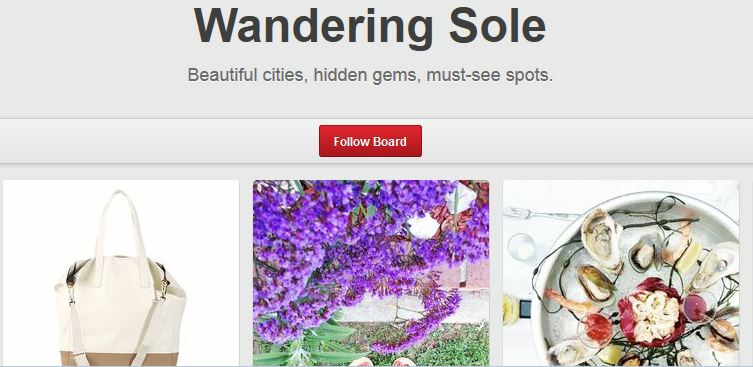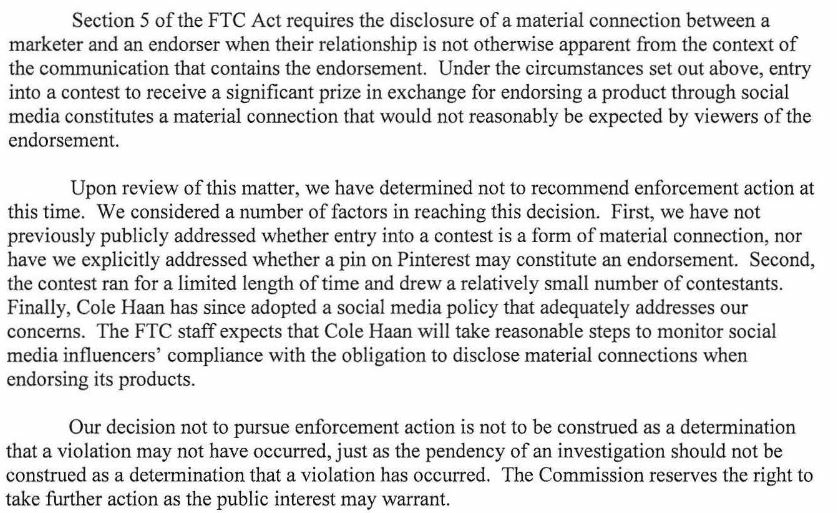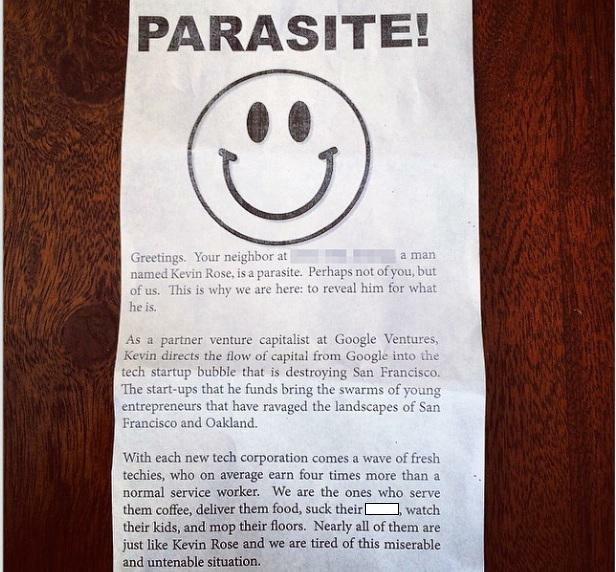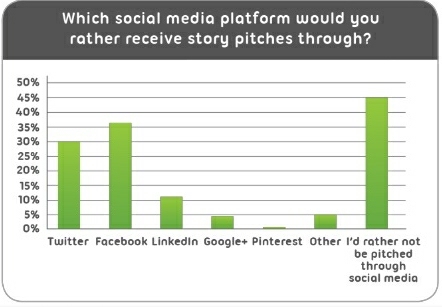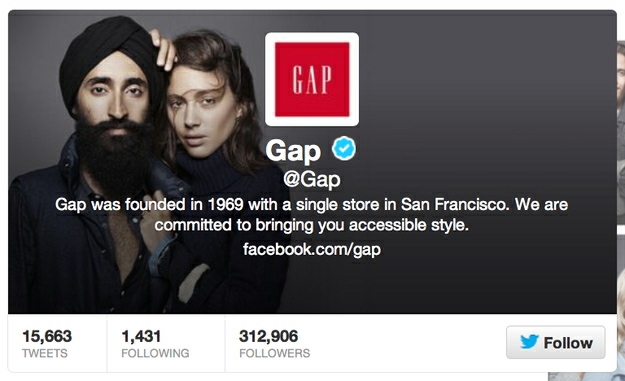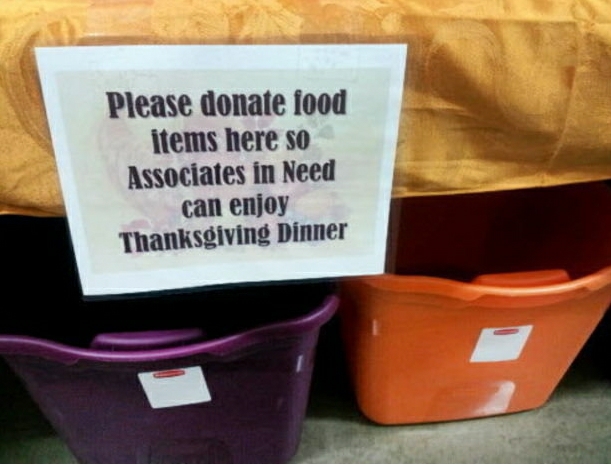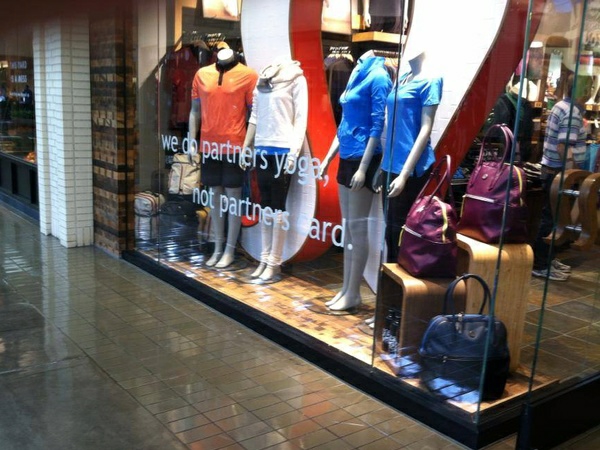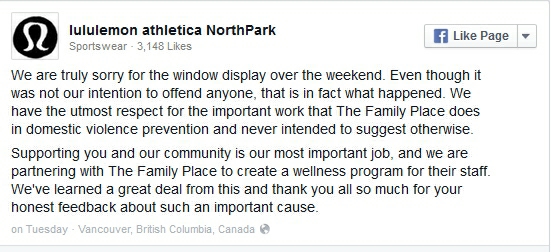FTC Admonishes Cole Haan's Pinterest Promotion
Cole Haan devised a contest encouraging Pinterest users to create boards called "Wandering Sole." As a creative pun, people were instructed to pin five pictures of Cole Haan products and five places. It was a cute idea, but the Federal Trade Commission (FTC) expressed concern about people getting rewarded-$1,000 for winning the contest-without admitting the connection between their posts and the potential monetary award.
In a letter to Cole Haan, the FTC admonished Cole Haan:
The FTC is concerned about deceptive social media practices. An easy solution, according to a MediaPost article, is for Cole Haan to have people indicate that their posts were part of a contest. An advertising lawyer suggests, "A hastag that included a word like 'sweeps,' or 'contest,' or 'giveaway,' would have satisfied the FTC's concerns."
Discussion Starters:
- What's the rationale for the FTC rule? What situations can you think of where this may be a significant issue? Or, do you think this rule is just silly?
- How, if at all, do you think adding the word "contest" would have affected this promotion?
"Like" This Page and Give Up Your Right to Sue?
General Mills is the latest company to try to restrict customers' right to legal action based on their interaction with the company on social media. The company's new legal terms define these conditions broadly, including being "a subscriber to any of our emails, or a participant in any sweepstakes, contest..."
According to The New York Times, "anyone who has received anything that could be construed as a benefit and who then has a dispute with the company over its products will have to use informal negotiation via email or go through arbitration to seek relief, according to the new terms posted on its site."
Although the move may be understandable considering the increasing number of class-action lawsuits, the director of a trial attorneys' organization explains the potential consequence: '"It's essentially trying to protect the company from all accountability, even when it lies, or say, an employee deliberately adds broken glass to a product."
Could merely visiting General Mills' website prevent a lawsuit? One attorney say it's unclear, but "You can bet there will be some subpoenas for computer hard drives in the future."
This story reminds me of KlearGear, the company that charged a customer $3,500 for a bad review.
UPDATE: General Mills reverses its decision and apologizes.
Discussion Starters:
- What's your view of the ethics of General Mills' new legal restriction?
- How do you see the new restriction playing out? Consider one or two situations where this restriction might apply.
- Does this story affect how you might approach social media contact with General Mills in the future?
"Your Neighbor . . . Is a Parasite" Flyer
Kevin Rose's neighbors have posted flyers identifying him as a "parasite." The founder of Digg and a Google Ventures partner was outed as one who is "destroying San Francisco" by directing funds for start-up companies.
In a tweet, Rose did concede some points:
The protest is a continuation of those angry at the so-called "Google Bus," which shuttles people to work at technology companies. Activists claimed, "This is the opposite of school busing. We're busing wealthy, predominantly white adults into low-income neighborhoods, where they in turns displace low-income people. This is the reverse of affirmative action."
Discussion Starters:
- To what extent do you empathize with the protestors? What are their points?
- What's your assessment of this group's approach of posting flyers? When I first saw the headline, I thought Rose was a pedophile.
Tobacco Free New York Radio Ads
Last month, CVS announced the decision to stop selling tobacco products in its stores. In the past week, this ad has been running on Ithaca radio stations.
On the Tobacco Free New York website, we see communications for other campaigns since 2010:
Discussion Starters:
- Take a look at the video about how tobacco companies sponsor community events. Do you consider their approach ethical? Use the ethical decision-making guidelines in Chapter 1 to formulate your argument.
- The ad, above, mentions that some drugstores have stopped selling tobacco products, but it doesn't name CVS. Why?
- What's the punctuation error in "Tobacco Free New York"? Is this a good choice for the organization's name?
No More @GSElevator Book Deal
The publishing deal for @GSElevator tweets is off the table. With 652,000 followers, the author had garnered an impressive following by tweeting what could be said in the Goldman Sachs elevator. He never claimed that the tweets were actually said-or that he worked for Goldman. When the book deal was first announced, it was unclear whether either mattered to Touchstone, a division of Simon and Schuster. But now that John LeFevre's identify has been revealed, the offer has been withdrawn.
According to a Business Insider article, the decision surprised LeFevre:
"It's just a comical mystery to me. As of Friday afternoon, after all of the noise - during which Simon & Schuster prohibited me from responding and defending myself - they have continued to support me and stand by our project. Well, until today apparently."
Simon and Schuster gave this statement:
"In light of information that has recently come to our attention since acquiring John Lefevre's STRAIGHT TO HELL, Touchstone has decided to cancel its publication of this work."
LeFevre also wrote a piece in Business Insider explaining the history of @GSElevator and defending himself. Here are a few excerpts, and you can read the full version here:
"For the avoidance of any doubt, any person who actually thought my Twitter feed was literally about verbatim conversations overhead in the elevators of Goldman Sachs is an idiot.
"Newsflash: GSElevator has never been about elevators. And, it's never been specifically about Goldman Sachs; it's about illuminating Wall Street culture in a fun and entertaining way. Without highlighting the obvious evolution of the tweets into more generally-appealing observations, let's start with the simple fact that each of my tweets says 'Sent from Twitter for Mac,' hardly the work of someone pretending to be hiding in the walls of 200 West.
"Being called a 'fake' or a 'hoax' by the same people who embraced me as 'satire' is simply laughable – and it really speaks to the silly and opportunistic attempts at cheap headlines.
"I have been completely transparent in saying that my tweets are edited, curated, and crafted, in a way that I think will best resonate and still embody the soul and mentality of Wall Street. My focus has been to entertain and enlighten, without being completely devoid of substance and insight."
Email Still Preferred for Pitching Stories
In a landslide vote, email won as the way media professionals want stories pitched. In a survey, Vocus: State of the Media 2014, 256 representatives from TV, newspapers, magazines, and online media chose email over social media, phone calls, and instant messaging.
Slides summarizing the findings show that, although respondents rely on social media for their reporting, they prefer not to receive stories through social media.
Discussion Starters:
- In what ways, if at all, do the survey results surprise you?
- Why do you think media professionals prefer email?
- For those who do prefer social media for story ideas, why do you think they prefer Facebook and Twitter to LinkedIn and Google+?
Goldman Parody Turns Into a Book
Here's the first parody Twitter feed turned into a book: @GSElevator, quips presumably heard on an elevator at Goldman Sachs.
Under the title "Straight to Hell: True Tales of Deviance and Excess in the World of Investment Banking," the anonymous author, according to the publisher, "will offer stories from his career in banking that capture the true character and nature of Wall Street culture today-a world far more abhorrent and way more entertaining than people can imagine."
In emails to the New York Times, the author ("Mr. Stone") described his interest in writing a book:
"These are stories that I have been collecting over the course of my experiences in banking-events that have been so outrageous and funny, that I thought that one day they might be worth sharing.
"Unlike other books that may be viewed similarly, this is not a whistle-blower scenario or an indictment or assault on a specific firm.
"My aim is to showcase and illuminate the true culture of Wall Street as I have experienced it, and write a book that is not only very funny and entertaining, but also, insightful and substantive."
Although the author has revealed his identify to his publisher, he has not identified himself publicly. People wonder whether he currently works at Goldman.
UPDATE: The author has been discovered. He's a bond trader in Texas who had a job offer from Goldman at some point but never worked for the company.
Discussion Starters:
- If the author does work at Goldman and this became known, how do you think his employer would react? Read more of his tweets to get a better idea of what he's writing. Should he be fired?
- Read about Greg Smith, who wrote an op-ed about his experience at Goldman. How are these situations similar-and different?
Are We More Social Today?
Studies of people in public spaces show that we may be more social today, despite hypotheses about technology pulling us apart. The Street Life Project in the 1960s and 70s photographed and filmed people in places, such as Bryant Park in New York City, to track how they sat, stood, and interacted with others. At the time, the goal was part of a city planning effort to improve public spaces.
Between 2008 and 2010, a University of Pennsylvania research team continued this work by filming people outside the Metropolitan Museum of Art. They coded 38 hours of footage based on sex, group size, loitering behavior, and phone use. The team found only 3% of adults on cell phones. As lead researcher Keith Hampton says,
"In the busiest public spaces, where there are a lot of groups, like this kind of public space, it's like 3 percent. Three percent. I can't even see someone on a cellphone right now, but yet how many times have you seen a story that says,'People on cellphones in public spaces is rude, it's creating all sorts of problems, people are walking into traffic.' I mean, we really have a strong sense that it's everywhere."
Hampton's research also found that people weren't talking to avoid contact with people but rather to kill time waiting for someone; the people on phones were alone. Twenty-four percent of people were alone on the steps, compared to 32% in the 1970s studies of the same spot. These findings support Hampton's other work about whether technology has made us more alone.
A New York Times Magazine piece provides a still of the work:
Discussion Starters:
- What's your view of these findings? In what ways do they surprise you-or not?
- What are some possible limitations of the study in drawing conclusions about how technology has affected us?
- The research also found that women are out in public today more than they were 40 years ago. What could explain this shift?
- In what ways has technology made you either more social or more alone?
McDonald's: America's Most Hated Company?
 McDonald's, which didn't make last year's list, tops this year's list of the Most Hated Companies in America. 24WallStreet.com published the list, although it's unclear how the results are determined. The website theorizes that the company's popularity slipped because of the controversy over low-wage workers and the company's low revenue growth.
McDonald's, which didn't make last year's list, tops this year's list of the Most Hated Companies in America. 24WallStreet.com published the list, although it's unclear how the results are determined. The website theorizes that the company's popularity slipped because of the controversy over low-wage workers and the company's low revenue growth.
On the rest of the list, we see some other familiar names in the BizCom in the News repository:
1. McDonald's
2. Abercrombie & Fitch
3. Electronic Arts
4. Sears Holdings
5. Dish Network
6. Walmart
7. JPMorgan Chase
8. Lululemon
9. BlackBerry
10. JC Penney
We see few surprises here.
Discussion Starters:
- How do you assess the credibility of this list? What other sources may provide more reliable information?
- What should McDonald's do to improve its image at this point? How about Lululemon, which has suffered because of declining product quality and a few mistakes by the CEO?
Emails Plague NJ Governor Christie
Emails obtained by The New York Times provide convincing evidence that the New Jersey Governor's office caused traffic problems as political retribution. One of Chris Christie's aides sent emails to David Wildstein, a high school friend of Christie who worked for the Port Authority that controls the George Washington Bridge.
The New York Times describes the political context and related messages:
"The mayor of Fort Lee, Mark Sokolich, is a Democrat and did not endorse Mr. Christie. In the emails and texts, Mr. Christie's staff and appointees appeared gleeful when the abrupt lane closings gridlocked the town for four days, beginning with the first day of school and including the anniversary of Sept. 11. Mr. Sokolich, who had not been informed of the closings, texted Bill Baroni, the governor's top appointee at the Port Authority, asking for 'help' because the lane closings were making children on buses late to school.
"'Is it wrong that I am smiling?' Mr. Wildstein texted Ms. Kelly.
"'No,' she texted back.
"I feel badly about the kids,' he texted.
"'They are the children of Buono voters,' she said, referring to Mr. Christie's Democratic opponent, Barbara Buono, who was trailing consistently in the polls and lost by a wide margin."
References to "the kids" relate to children who were late to school because buses were delayed on the bridge.
The emails and texts are making it difficult for the governor to continue denying his office's role in lane closings. Wildstein and another Port Authority official resigned in December.
UPDATE: In a news conference, Christie apologized and said he was "embarrassed" and "humiliated" about the situation. As in his speech at the Republican National Convention, he used a heavy dose of anaphora.
Discussion Starters:
- So far, Christie is not commenting on the emails and texts. How should he respond to the controversy?
- Christie's staff used personal Gmail accounts and text messages to communicate. Why weren't these safe from exposure?
New Twitter Terms
New York Magazine has published new terms that emerged on Twitter in 2013. I did my best to summarize them here:
- Canoe: a Twitter conversation involving more than three people
- Close that tab: advice to close a browser tab quickly because of something terrible
- Darth: a wizard with a lot of fans
- Day-of-the-week jokes: blaming a day on something bad or tweeting "TGIF" on another day
- #deblasionew york: blaming everything on NY's new mayor, even before he took office
- Doge: a meme that I don't understand at all (!)
- First-name-only replies: calling someone out on Twitter
- Florida man: attributing strange happenings to someone in Florida ("the weirdest state")
- Hatefave: favoriting a tweet to "ruffle the recipient's feathers"
- Hateread: encouraging people to read something distasteful
- @Horse_ebooks: a poetic thread made up of short contributions
- Scoop, if true: encouraging retweets/reporting without regard to truth
- Smarm: performance without substance
- Subtweet: directed at one tweeter (back-talking)
- Teach the homeless code: based on an experiment considered in poor taste
- Whoa: emphasizing another's tweet
- "You won't believe what happened next": a way to encourage clicks
And my two favorites of the bunch with examples:
-
Because [noun/preposition]: "A new type of prepositional phrase, because character limits." Why waste words (I guess)?

- #Followateen: parents writing about their kids (until they discovered the hashtag and retaliated). Ouch. I wrote about "literally" recently.

Discussion Starters:
- Do you find these interesting or, as one comment on the story says, "Twitter is dumb."
- Another comment on the story reads, "This must be what's popping on #WhiteTwitter. Because #BlackTwitter tells a different story." What does this mean, and do you agree with the comment?
Facebook Further Declines Among UK Teens
 A new study shows that British teenagers find Facebook embarrassing. The Social Media Global Impact Study tells a dramatic story of teenagers moving away from Facebook.
A new study shows that British teenagers find Facebook embarrassing. The Social Media Global Impact Study tells a dramatic story of teenagers moving away from Facebook.
A member of the research team and professor of anthropology in University College London, Daniel Miller describes the shift:
"Parents have worked out how to use the site and see it as a way for the family to remain connected. In response, the young are moving on to cooler things.
"What we've learned from working with 16-18 year olds in the UK is that Facebook is not just on the slide, it is basically dead and buried."
Miller also describes the impact on family dynamics:
"Where once parents worried about their children joining Facebook, the children now say it is their family that insists they stay there to post about their lives."
According to the study, UK teens are using Snapchat, Whatsapp, and Twitter rather than their parents' social network.
Discussion Starters:
- Do the study findings surprise you? Why or why not?
- What, if anything, can Facebook do to lure back teens? Respondents in this study admit that Facebook has better functionality than other sites, so that may not help.
The Internet Mob
A New York Times article criticized reactions to Justine Sacco's AIDS tweet as harshly as the tweet itself.
Sacco, the terminated communications director of an Internet company, fired off a jokey tweet ("Going to Africa. Hope I don't get AIDS. Just kidding. I'm white!") and suffered harsh consequences. Response tweets threatened murder and rape: 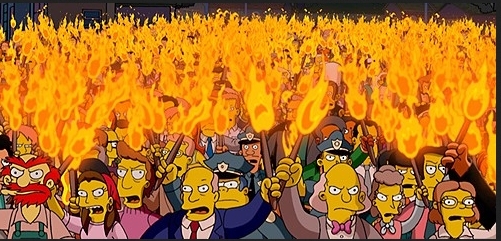
- "Someone please borrow me a Gun, I need to shoot -->"
- "Someone (HIV+) must rape this b**** and we'll see if her skin colour can protect her from AIDS."
Such tweets are painful to read and, of course, do nothing to teach a lesson, if that's the intent, of appropriate social media behavior.
The New York Times article explains the power of an Internet mob,
"...today's riots are different in that it is the powerful, specifically those with the largest followings online, that could help quell these eruptions, yet instead douse them with more anger and hate."
and continues:
"In the eyes of the mob, there was justice.
"Yet the people who threatened to rape and murder Ms. Sacco, who attacked her family and friends, aren't held in contempt or fired from their jobs."
As the social media cycle goes, people have come out in defense of Sacco: not to justify her tweet, which would be difficult, but to say that she's generally a nice person. Also, a friend relays a recent conversation in which Sacco said "people seemed to like the tweets that were just a little bit risqué or outrageous."
Discussion Starters:
- What's your view of The New York Times article? Should people who criticize so harshly also suffer consequences?
- This story reminds me of when Adam Smith was fired from his company after "berating" a customer service employee at Chick-fil-A. What similarities and differences do you see in these situations?
Dental Letter Appears to Deceive Families
 Dental insurance provider Healthplex sent a letter to 55,025 families that confused them into believing their children were required to get check-ups. Written to "Parent or Guardian" and quoting a state law, the letter sure sounds like a school directive, but it is not. Rather, the letter encouraging parents to bring their children in for dental exams-and to provide evidence to their school-is the insurance company's marketing approach.
Dental insurance provider Healthplex sent a letter to 55,025 families that confused them into believing their children were required to get check-ups. Written to "Parent or Guardian" and quoting a state law, the letter sure sounds like a school directive, but it is not. Rather, the letter encouraging parents to bring their children in for dental exams-and to provide evidence to their school-is the insurance company's marketing approach.
 The confusion was discovered when school nurses started receiving signed notices verifying that children received check-ups.
The confusion was discovered when school nurses started receiving signed notices verifying that children received check-ups.
In response to the controversy, Sharon Zelkind, senior vice president at Healthplex, said, "We try to do outreach to get as many children into the dentist as possible." She also admitted, "The wording of the letter was overzealous" and "Now we've learned we shouldn't do it that way."
Discussion Starters:
- What are the ethical considerations of the Healthplex letter? Evaluate the letter from the perspective of the company, dentists' offices, parents, children, and school officials.
- What, if anything, should Healthplex do in response to the controversy?
Glassdoor's Best Employer List
Glassdoor is now in the game of ranking companies to work for, using employee data to determine the top 25. The website asks employees to complete anonymous online surveys about career advancement, compensation, benefits, and work/life balance.
Bain tops the list of the "Employees' Choice Awards" as the best company to work for in 2014, followed by Twitter, LinkedIn, Eastman Chemical, and Facebook. It's interesting that three of the top 5 are social media sites, and Twitter's ranking can only help the new stock. Facebook, however, dropped from first place last year to fifth.
On the rest of the list, we see some old favorites from Fortune's Best Companies to Work For, such as Wegman's and Google, which are both in the Fortune top five.
But the companies don't match entirely. Three of Fortune's top five-SAS, CHG Healthcare Services, and The Boston Consulting Group-are missing entirely from Glassdoor's top 50.
Discussion Starters:
- What could explain the difference in Fortune's and Glassdoor's lists?
- Why do you think Facebook dropped from 1 to 5?
- What surprises you about the Glassdoor company list? Do you see companies that you wouldn't expect on the list, and which are missing?
Gap Responds Swiftly to Racist Comments
When Gap heard one of its ads was graffitied with racist comments, the company responded quickly.
Gap created an ad featuring Waris Ahluwalia, an Indian-American designer and actor, and Quentin Jones, a model and filmmaker. Much of the reaction was positive, but not everyone was happy with the portrayal. This version of the ad made the rounds on Twitter:
When Gap learned of the graffitied ad, the company asked for more information, which is appropriate before deciding how to respond. Soon after, Gap changed its Twitter banner to the original image:
Support for Gap's response traveled throughout Twitter, with people thanking Gap and promising to shop the store for the holidays.
Still, Gap's other ads as part of the "Make Love" campaign are getting mixed reviews. An ad featuring two men was defaced with homophobic comments. That one was ordered removed by the mayor of Chicago.
Discussion Starters:
- What's your assessment of Gap's response? What worked well?
- I don't see any Gap comments or tweets about the situation. Should the company have done anything else?
Walmart Criticized for Food Drive for Employees
Walmart Foundation has initiated a campaign against hunger, but an internal effort to help Walmart associates is getting more attention. In this video produced by Walmart Corporate, an executive explains the $2 billion effort, which includes a food drive.
The sign, below, taped to a table inside an employee breakroom at Walmart store, isn't getting such a welcome response. A Walmart employee in Canton, Ohio, photographed the sign as an indication that the company pays insufficient wages.
Spokesperson Kory Lundberg told Yahoo Finance,
"That store has set up a bin for associates to help out other associates. These are people that have had some unforeseen hardship in the last year. Maybe their spouse lost a job, or they experienced the death of a loved one, or a natural disaster impacted their home-things you just can't plan for. It's a chance for associates to look out for and help each other."
Discussion Starters:
- What's your reaction to the food drive for employees? Do you buy the spokesperson's explanation, does this prove that Walmart doesn't pay enough, or something else?
- What important messages do you hear in the Walmart video? How effective is the video in convincing you that Walmart has a serious commitment to ending hunger?
KlearGear Charges Customer $3,500 for a Bad Online Review
A customer who didn't receive what she ordered from KlearGear wrote a negative review on a complaint site and was charged $3,500. KlearGear sells desk toys such as an LED shoelaces and something called a Splat Stan Coaster-a figure squashed by a coffee mug (not on my Christmas wish list).
Three years after the customer posted on the site RipoffReport, KlearGear contacted her husband and requested $3,500, based on a clause in the company's terms of service (which apparently wasn't included at the time):
Non-Disparagement Clause
In an effort to ensure fair and honest public feedback, and to prevent the publishing of libelous content in any form, your acceptance of this sales contract prohibits you from taking any action that negatively impacts KlearGear.com, its reputation, products, services, management or employees.
Should you violate this clause, as determined by KlearGear.com in its sole discretion, you will be provided a seventy-two (72) hour opportunity to retract the content in question. If the content remains, in whole or in part, you will immediately be billed $3,500.00 USD for legal fees and court costs until such complete costs are determined in litigation. Should these charges remain unpaid for 30 calendar days from the billing date, your unpaid invoice will be forwarded to our third party collection firm and will be reported to consumer credit reporting agencies until paid.
The clause, of course, is ridiculous. Trying to control social media conversation is a fool's game and can only hurt a company in the long-run. KlearGear made the situation worse when it closed its Twitter and Facebook accounts.
Discussion Starters:
- What's your view of KlearGear's "Non-Disparagement Clause"? One writer calls it "contemptible, unethical, and un-American." Do those adjectives sum it up for you-or are others more appropriate?
- How would you advise KlearGear to handle the social media situation?
- Imagine that KlearGear reopened its Facebook page. Write an apology post on behalf of the company.
Lululemon Offends Again
After months of controversy over Lululemon's declining yoga-wear quality, the company is in the news for a new issue: mocking a shelter's fundraising strategy.
Reflecting what a Dallas website calls an "oddly aggressive stance against Dallas charity," Lululemon posted a sign on a local store window that reads, "We do partners yoga, not partners card." "Partners Card" refers to the work of The Family Place, a Dallas-based not-for-profit organization that provides housing, counseling, and other resources for people in abusive situations.
The Family Place website describes the Partners Card:
"Partners Card is the signature fundraiser for The Family Place, Dallas' largest domestic violence agency. 100% of your Partners Card purchase goes directly to supporting survivors of family violence."
People who buy a $70 Partners Card through the organization receive a 20% discount at hundreds of local stores-a list that doesn't include Lululemon.
Responding to the criticism, Lululemon posted this message on its Facebook page:
"The intention behind the window decal was to share our love for yoga, not to offend our community. Although we choose not to participate in Partner's Card, we choose to give back in a different way. We are working in collaboration with Family Place to offer the gift of yoga, and what we can create together."
In another post-this one from the corporate headquarters in Canada-the company seemed to be taking action:
In response to an inquiry from Dallas Culture Map, The Family Place expressed appreciation to its supporters:
"Every Partners Card we sell at the Family Place provides a night of safety and shelter for victims of family violence. We understand that not every retailer can give the 20% discount, but we are thankful for the hundreds who do and for the thousands of donors who buy a card. We look forward to working out a way Lululemon can join our important mission to end violence in the homes of Dallas County."
Discussion Starters:
- What were Lululemon marketers thinking when they put up this display? What do you think the store was expecting, and how was management misguided?
- How do you assess Lululemon's apology-both the store's post and the corporate headquarter's approach of working with Lululemon?
- In the headquarter's post, the company says it's creating a wellness program for staff. Is this an appropriate solution? Why or why not?
Facebook Finally Admits Decline in Young Teens
 After denying reports of young teens forgoing Facebook, company officials have finally admitted the decline. On a third-quarter earnings call, CFO David Ebersman told analysts,
After denying reports of young teens forgoing Facebook, company officials have finally admitted the decline. On a third-quarter earnings call, CFO David Ebersman told analysts,
"Our best analysis on youth engagement in the US reveals that usage of Facebook among US teens overall was stable from Q2 to Q3, but we did see a decrease in daily users, specifically among younger teens."
This drop seemed to shake investors' confidence. The stock dropped 2% on the news.
According to the CNET article, Ebersman also admitted that it's difficult to determine teen activity becauses this group often fabricates dates of birth.
Earlier reports claimed that Facebook isn't cool now that mom and dad (and grandma) have accounts. Some statistics show that young teens are flocking to sites such as Twitter and Tumblr instead.
Discussion Starters:
- How do you think Facebook made the decision to stop denying reports? What do you think were the deciding points?
- What's your view of Facebook's claim about fabricated birth dates? What are the responsibilities of users, the company, parents, and perhaps other groups?


